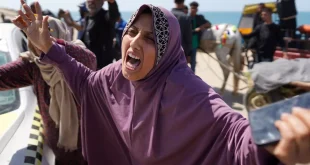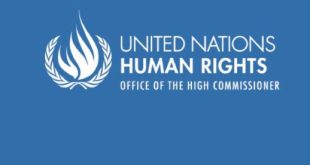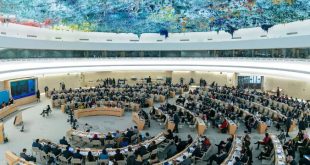INTERVIEW/PROF. DR BALADAS GHOSHAL.
How has global Islamic resurgence affected Indian Muslims?
Globalisation, the internet and the global war on terror have affected Indian Muslims. There is also a victim mentality growing out of their sense of insecurity, which makes them ghettoised, and an attempt to search for scapegoats instead of looking into their weaknesses.
Is the consolidation of Muslim identity among Indian Muslims a mere reaction to right-wing Hindu fundamentalist forces?
Hindu extremism is both a cause and an effect of Islamic fundamentalism. One couldn’t find Hindu extremists in the way one sees today in the 1950s and 1960s, even until the 1980s. The transformation of Pakistan under Zia-ul-Haq and the Islamisation of that society had an effect on Indian Muslims, creating an assertiveness on their part, which produced Hindu extremism, and in turn produced a sense of insecurity among Indian Muslims.
Is there an increasing feeling among Indian Muslims that their ancestors were once rulers of this land and are today powerless?
Surely, that feeling is there, but then that also brings a dichotomy between the upper class Muslims, who trace their pedigree to their Arab origin, and the so-called converts from lower social strata. One has to blame the Muslim leadership for this. They never tried to reform their own society or spread modern education which would have lifted their society from the backwardness. Instead, the more privileged ones tried to get into the mainstream. Some promoted madrassa education, which further alienated the Muslims from the mainstream and introduced them to the Arab type of Islam.
Do Indian Muslims look to the Arab world for inspiration? If yes, is it because of socio-economic or historical reasons?
Religious inspiration as well as for ideas about Islamic banking, insurance and such. Osama bin Laden is surely an inspiration, which they may not admit publicly.
How will Arabisation impact Indian society and polity?
[There will be] greater polarisation along religious lines as Arabisation will produce greater reaction from Hindu extremist organisations. The crisis is within Islam and needs to be addressed by the Muslims themselves, as it will affect them more if they want to stay away from modern culture and economy. But the intellectuals and elites within the Muslim community are silent because they fear they might be accused of not being good Muslims.Ghoshal is visiting professor at Academy of Third World Studies, Jamia Millia Islamia, and visiting senior fellow, Centre for Policy Research, New Delhi.
 Sri lanka Muslims Web Portal Diversity and Inclusiveness
Sri lanka Muslims Web Portal Diversity and Inclusiveness




Asiff Hussain has made very interesting comments on my comments on the item ‘Muslim Imtellectuals are silent’. I must point out however that the Mahabharata TV series and similar developments on both the Muslim and Hindu sides can all be fitted into the paradigm of increasing group consciousness. That’s the paradigm, but admittedly we have to also bear in mind the specific. I am entirely in agreement with what Asiff says on extremism in Pakistan’s version of Islam, and look forward to reading his article.
Interesting article, and although I too don’t agree with the author in all of his contentions, he has a point when he says that Zia Ul Haq’s ‘Islamisation programme’ mobilised the Hindu extremists to impose a Hindutva ideology on their country. India, we all know, was a secular state till the rise of the BJP. One reason for their rise was perhaps the emerging group consciousness you make a case for, but there were other factors besides, such as the telecast of the well-known Mahabharat series based on the Hindu epic Ramayana which seems to have influenced naive Hindu minds to have their own version of a Dharmarajya based on the ancient Hindu law code, despite its obviously outdated and oppressive features.
But this was not all. Zia Ul Haq’s so-called Islamization programme too would have had an impact. After all, would not the Hindu extremist elements argue that if Pakistan, a Muslim majority country could have its Islamic laws, why could n’t India, a Hindu majority state have its Hindu laws.. One can only imagine the influence such an argument can have on the minds of the susceptible Hindu masses.
This is particularly so in a context where Zia’s programme went beyond what an ideal Islamic state should stand for, with its harsh blasphemy laws, for instance, and that is why we see so much blind extremism in Pakistan today, and believe me when I tell you that Pakistan is a failed state, with rebellion to established authority, mob rule, sectarianism and oppression of minorities being the order of the day. I mean, is this what the Islamic State envisaged by our beloved Prophet (PBUH) should be like ?
The rot I believe started with the so-called blasphemy law of Pakistan that does not even give the accused an opportunity to repent – a very unislamic piece of legislation. The cult of hate that characterises Pakistani society today I believe has its origins in such perverse thinking. Consider how the Penal Code of Pakistan defines blasphemy. It states: “Use of derogatory remarks etc in respect of the holy Prophet (PBUH) by word, either spoken or written. Or by visible representation, or by importation, innuendo or insinuation, directly or indirectly, defiling the sacred name of the holy Prophet (PBUH)”. The penalty for such blasphemy, it declared, was death or life imprisonment. The Federal Shari’ah Court of the country however ruled in 1990 that the penalty should be a mandatory death sentence with no right to reprieve or pardon.
Not only is the wording of this legislation in specifying what the offence constitutes of too rigid, but it also gives no opportunity for the accused to repent, thus saving himself or herself from the death penalty, contrary to the opinion of some great Jurists such as Imam Shafi. In fact, I am in the process of writing an article on the issue taking into consideration what the Qur’an and Sunnah actually have to say about the matter. What I have noticed browsing through various ‘Islamist’ websites is how the extremist elements have sought to twist the ahadith to drive home their perverse version of Islam as an intolerant creed that preaches hate. So much so indeed that I have come to suspect these sites to have some sinister Jewish connection behind them. Hence my decision to set the facts straight.
Very interesting. But one point he makes is questionable. He writes that there was no Hindu extremism even up to the 1980s and attributes it to Zia-ul-Haq’s Islamisation program in Pakistan which led to a new Muslim assertiveness setting off Hindu anxieties. I wonder whether the rise of Hindu extremism might not be better explained in terms of another paradigm : increasing group consciousness in the contemporary world and the consequent spread of identity politics, that is politics in which group interests predominate over everyting else. Another interesting point is that Indian Muslim intellectuals are silent because of fear. I find that interesting because fear seems to be the most noteworthy characteristic of the Sri Lankan Muslims- of today